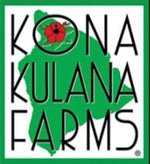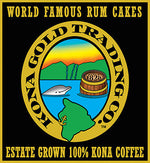Becoming a Q Grader: How the Coffee Quality Institute Trains the Best Coffee Tasters



The Coffee Quality Institute (CQI) plays a major role in improving the standard of coffee globally. As a nonprofit organization, CQI works to enhance coffee quality and support farmers through education, research, and training. One of its most recognized contributions is the Q Grader program, a certification that identifies professionals with expert-level skills in evaluating coffee quality.
A Q Grader is a certified coffee taster trained to objectively assess coffee based on strict industry standards. Their evaluations help ensure consistent quality across the supply chain. This certification is highly valued, especially in specialty coffee markets, because it creates a shared language for quality and provides credibility to producers and roasters.
From crop to cup, Q Graders bring clarity and trust. Farmers use their feedback to improve harvests. Roasters rely on them to select the best beans. Even coffee lovers benefit from enjoying a better brew made from carefully graded beans.
Buddha's Cup is known as one of the sole producers of premium Kona coffee due to our devotion to quality. Our Hawaiian volcanic farms yield coffee beans that highlight the unique taste that Kona coffee embodies. Using the guidance of Q Graders, who evaluate and refine our coffee’s flavor profiles, Buddha's Cup ensures unmatched precision when it comes to quality and flavor.

Key Takeaways
-
CQI is a nonprofit organization focused on improving coffee quality and sustainability worldwide.
-
The Q Grader program certifies professionals in coffee sensory evaluation.
-
Q Graders use standardized protocols to assess aroma, flavor, balance, and defects in coffee.
-
Farmers get valuable insights from Q Grader assessments to improve their yields and earnings.
-
Roasters trust Q Grader reports to make informed purchasing decisions.
-
Coffee drinkers benefit from better-quality brews that meet high standards.
- Buddha’s Cup produces premium Kona coffee, ensuring consistent quality and sustainability, supported by expert evaluations from Q Graders.
What is the Coffee Quality Institute (CQI)?
The CQI (Coffee Quality Institute) was established to improve coffee quality and the lives of the people who produce it. It works globally with producers, exporters, and coffee professionals to build a more transparent and sustainable coffee supply chain.
CQI supports sustainable coffee production through training, technical support, and partnerships. It helps farmers increase the value of their crops by focusing on quality, not just quantity. This also promotes fair trade practices, as high-quality coffee often commands better prices.
In addition to training, CQI plays a key role in developing global standards for specialty coffee grading. These standards, used in the Q Grader program, ensure that everyone in the coffee world evaluates beans using the same objective criteria—resulting in more consistent, high-quality coffee for everyone.
Who Are Q Graders, and Why Are They Important?
Q Graders are certified professionals trained to evaluate coffee quality using a standardized system developed by the Coffee Quality Institute. They assess a coffee’s aroma, flavor, acidity, body, and other attributes through a process called cupping—the industry’s method of tasting and scoring coffee.
Q Graders play a key role in maintaining consistency in specialty coffee. Their evaluations help identify top-performing coffees and ensure beans meet quality expectations across different markets and origins. Because they follow strict protocols, their scores provide objective insights that farmers, buyers, and roasters can trust.
Their expertise benefits everyone in the coffee chain. Farmers get meaningful feedback that helps them improve their harvests. Roasters make better purchasing decisions based on Q Grader assessments. And consumers enjoy better-tasting coffee with consistent quality in every cup.
The Journey to Becoming a Q Grader

The Q Grader Certification Process
Becoming a Q Grader requires dedication and skill. The certification program involves an intensive six-day course followed by a rigorous series of exams. These tests cover sensory skills, green coffee grading, roasted coffee evaluation, and cupping consistency.
Anyone working in the coffee industry—producers, traders, roasters, baristas—can apply for certification. While there are no formal prerequisites, candidates benefit from prior cupping experience and a strong understanding of coffee basics.
The program’s difficulty level has earned it a reputation as one of the most challenging certifications in the coffee industry. Candidates must pass over 20 individual tests to qualify. Many take the exam more than once before succeeding.
Training and Skill Development
Q Graders need to develop high-level sensory skills, including the ability to detect subtle flavor notes and identify defects in coffee. Training focuses heavily on cupping, which involves evaluating brewed coffee samples under controlled conditions.
Beyond flavor detection, Q Graders learn to assess balance, mouthfeel, sweetness, and aftertaste. They train their palates to detect inconsistencies and ensure objectivity in scoring. Consistency is critical—a Q Grader’s evaluations must be repeatable and reliable across multiple cupping sessions.
Through this training, Q Graders become trusted voices in the coffee community, helping elevate quality at every step of the supply chain.
The Coffee Quality Institute (CQI) has been instrumental in elevating global coffee standards through its comprehensive programs and certifications. One of its most notable contributions is the Q Grader certification, a rigorous credential that signifies a professional's expertise in assessing coffee quality.
Intensive Q Grader Exam

The journey to becoming a Q Grader is both demanding and rewarding, reflecting the high standards set by the CQI.
Breakdown of the 6-Day Exam and Its Difficulty Level
The Q Grader certification process spans six days, divided into two main segments:
- Days 1-3: Training and Workshops
Candidates engage in intensive training sessions, familiarizing themselves with the protocols and standards of coffee evaluation. This phase includes practice tests to prepare for the upcoming examinations. - Days 4-6: Examinations
Over these three days, candidates undergo a series of 19 tests designed to assess their sensory and analytical skills in coffee evaluation.
The certification is renowned for its difficulty, with a comprehensive assessment that challenges even seasoned professionals. The cost of the program is approximately $2,000, and certification must be renewed every three years to ensure that Q Graders remain updated with evolving coffee trends.
Overview of the 20+ Tests Covering Sensory Skills, Olfactory Identification, and Cupping The examination encompasses a broad spectrum of tests, including:
- Cupping Tests (4 exams): Evaluating coffees from various regions—such as Milds, African, Asian, and natural coffees—candidates must accurately assess and score each sample.
- Triangulation Tests (4 exams): In this sensory exercise, candidates are presented with sets of three cups, where two contain the same coffee and one is different. The task is to identify the odd cup based on taste and aroma.
- Olfactory Tests (4 exams): Using the Le Nez du Café aroma kit, candidates must identify specific scents commonly found in coffee, testing their sense of smell and memory.
- Sensory Skills Tests (2 exams): These tests measure the ability to detect and differentiate basic tastes—sweet, sour, and salty—in various concentrations and combinations.
- Organic Acids Matching Pairs Test (1 exam): Candidates must identify common acids present in coffee, such as acetic, citric, malic, and phosphoric acids, by tasting fortified coffee samples.
- Green and Roasted Coffee Grading (2 exams): Assessing physical defects in green coffee beans and identifying roast defects in roasted samples are crucial components of these tests.
- Roasted Sample Identification (1 exam): Candidates must distinguish between underdeveloped, baked, overdeveloped, and standard roasts.
- General Coffee Knowledge (1 exam): A written test covering various aspects of coffee cultivation, processing, roasting, and brewing.
These assessments ensure that certified Q Graders possess a well-rounded and precise understanding of coffee quality.
Source: Coffeeness
What Happens if a Candidate Fails and How Retakes Work
Given the exam's rigor, it's common for candidates to face challenges. If a candidate does not pass all components, they are typically allowed to retake the specific tests they failed. However, retakes must be completed within a certain timeframe, and additional fees may apply. Continuous calibration and recertification are required every three years to maintain the Q Grader status, ensuring that professionals stay aligned with current industry standards.
Why Q Graders Matter for Kona Coffee Lovers

Alongside its limited supply, Kona coffee has grown in astounding popularity due to its one-of-a-kind taste. It is adored by coffee lovers who make sure to safeguard its authenticity and quality. No other professionals play such an integral part other than Q Graders.
Ensuring the Authenticity of 100% Kona Coffee
A Q Grader's skill set allows them to confirm whether Kona coffee is actually authentic by spotting any possibility of tampering or false labeling. They help sustain Kona Coffee's trademark by assuring clients that the products offered to them are not fake. This helps sustain not only the Kona coffee reputation but also the consumer’s interest.
Marketing Kona coffee under lower standard/quality will lead to the loss of prestige. Such practices send the wrong message to the consumers and damage the famed reputation of Kona coffee producers.
How Q Graders Enhance the Coffee Experience
Q Graders pay utmost attention to detail when it comes to evaluating coffee beans, focusing on factors such as aroma, flavor, acidity, body, and aftertaste. They assist in the determination of high-quality standards so only the best beans get to consumers.
Q Graders specialize in coffee evaluation, and their work is critical in maintaining the high reputation of Kona Coffee. They prevent lower quality beans from being added to the 100% Kona-grade coffee by accurately grading the coffee’s unique taste properties, thereby enabling the preservation of its famous flavor.
Impact on Sustainability and Fair Pricing
Q Graders assist producers in accessing specialty markets that often embrace fair trade and ethical sourcing, which improves working conditions and payment practices in the coffee industry. These specialized beans are often sourced for coffee’s highest quality and most desirable brands.
Coffee beans from farmers who sell to Q Graders fetch higher prices due to the accurate grading, which ensures that every farmer receives equal pay.
The slope of the curve for grading versus pricing shifts upward. This means that as farmers’ livelihoods improve, there is a greater incentive for them to produce high-quality coffee.
Sustainable coffee production is greatly facilitated by expert evaluation on the ground by Q Graders because they assist in implementing practices that yield high-value beans. Focusing on quality over quantity facilitates environmentally friendly agricultural practices and sustainability among coffee producers.
3 Common Challenges in Becoming a Q Grader

The Art of Coffee Cupping
Developing the right sensitive palate to isolate particular notes of flavor is quite the task for hopeful Q Graders. Consistent practice is essential to enhance sensory skills, and common mistakes during cupping include misidentifying flavors or missing defects.
The Q Grader Exams
With the Q Grader verification comes a set of more than twenty tests, making it a very stressful exam. Some of the main ways of preparation involve lots of practice with cups, triangulation, and learning the SCA cupping form by heart.
Enhancing sensory calibration and olfactory recognition requires dedicated practice with tools like the Le Nez du Café aroma kit and engaging in diverse tasting experiences to broaden one's flavor identification capabilities.
Dealing with Sensory Fatigue and Bias
Prolonged coffee tasting may bring about sensory fatigue, which is best described as a reduction in sensitivity of the palate, making it difficult to appreciate some subtle flavor details. And Q-grader performance can vary based on factors like the timing of evaluations, indicating that sensory fatigue can impact judgment accuracy.
To combat sensory fatigue, include breaks and palate resets while grading. This practice enhances and ensures the validity of evaluation bias.
Making use of calibration samples prior to assessment helps to equalize the bias when assessing samples. Samples can also be random so that a specific position does not in any way determine a sample position that influences judgments.
Should You Become a Q Grader?
Q Grader certification is particularly beneficial for:
- Roasters: It aids in sourcing high-quality beans and understanding their flavor profiles.
- Baristas: Improves their capacity to recognize and explain coffee flavors to patrons.
- Coffee consumer: Aids in the decision-making process of the purchase with the help of a predefined quality standardized assessment.
These roles benefit from a shared language of quality, facilitating better communication and access to premium markets.
Becoming a Q Grader requires a significant investment of time, effort, and resources. The certification process is intensive, comprising six days of training and examinations, covering over 20 tests. It's considered one of the most challenging certifications in the coffee industry, with costs of around $2,000 and a requirement for recertification every three years.
How Can You Experience the Best of Kona Coffee?
Q Graders and the CQI play pivotal roles in enhancing the specialty coffee industry by ensuring consistent quality, promoting fair trade, and supporting sustainable practices. Their work benefits producers, consumers, and all professionals involved in the coffee supply chain.
For those interested in experiencing high-quality Kona coffee, exploring offerings from reputable producers like Buddha’s Cup can be a rewarding journey.
We offer guided tours where tourists can visit our beautiful farms while enjoying premium-grade coffee. Guests can witness the entire journey of coffee production, right from sowing the seeds to roasting the final product.
FAQs
What is a Q Grader?
A Q Grader is a certified professional for tasting and grading coffee. They follow certain guidelines evaluating the coffee on various parameters like smell, taste, acidity, and body to ensure the coffee is of a certain standard and quality comparable to other products in the market.
How does one become a Q Grader?
One must undergo a rigorous six-day training course that entails multiple evaluations and skill tests of coffee grading through various parts of coffee assessment. An equally challenging task is developing a nose for the different qualities of coffee.
What is the significance of holding a Q Grader certificate?
Holding a Q Grader certificate allows these experts to have a unified understanding of coffee, assuring seamless dialogue amongst the sellers, buyers, and consumers, enabling the development of fair trade practices within the coffee industry and its sustainable, eco-friendly measures.
How frequently do Q Graders require recertification?
Q Graders require recertification of their credentials every three years with the assurance of upholding the previously attained title, ensuring currency with current trends in coffee, and consistent evaluation of the senses used for grading the coffee.
What are the benefits of Q Grader certification for coffee professionals?
Q Graders have a profound impact in assisting coffee farmers through impartial and professional evaluations of their coffee beans. Such assessments highlight the value of their harvest and identify the processes that need refinement in cultivation and processing.
This assists trainees in meeting the stringent requirements of the specialty coffee industry. Consequently, this gives them a better market price for their high-quality beans. The growers receive guidance, which in turn helps them to improve their practices to ensure that they are able to fairly boast of meeting the global demand aftermarket. This leads to improved economic outcomes and a sustainable way of life.









